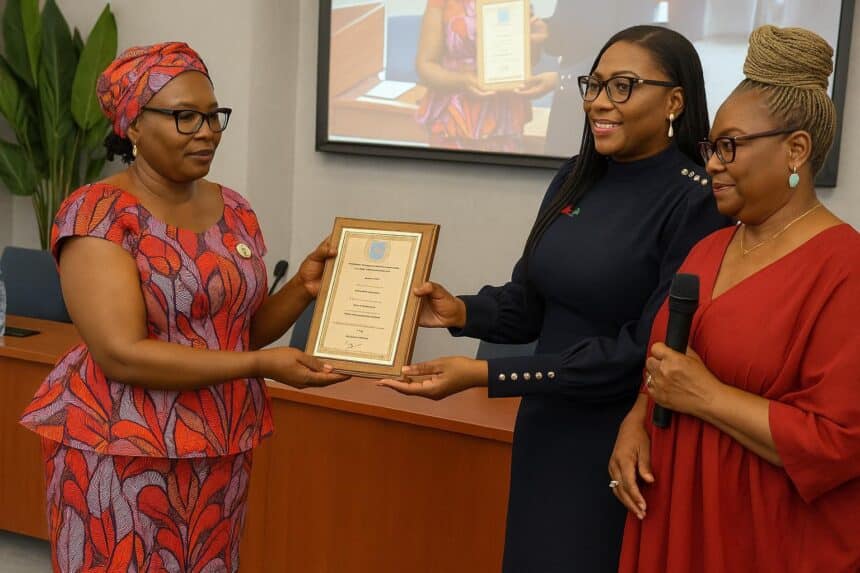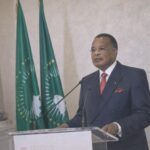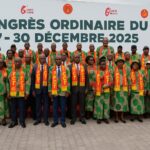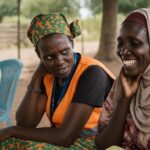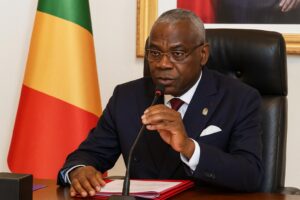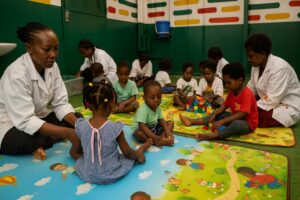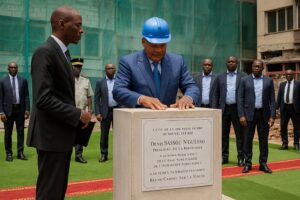A festive three-day summit in Brazzaville
From 6 to 8 October 2025, the Hilton Les Tours Jumelles hummed with the energy of more than 400 entrepreneurs gathered for the second Women Economic Forum, held under the patronage of First Lady Antoinette Sassou Nguesso and steered by the Chamber of Women Business Leaders.
- A festive three-day summit in Brazzaville
- Financial inclusion takes center stage
- Panels that sparked debate
- Genius program spotlights young innovators
- Network power and mentors
- Government and partners at the table
- Concrete pledges for 2026
- Media buzz fuels momentum
- A stronger regional voice by women entrepreneurs
Special Adviser Blandine Malila opened the proceedings on behalf of the First Lady, applauding ‘the daily courage that turns market stalls into thriving firms’. Her words set a collaborative tone that would persist through three days of keynotes, workshops and late-night brainstorming sessions (Les Dépêches de Brazzaville, 9 Oct 2025).
Financial inclusion takes center stage
The headline theme, “Genius Financial Inclusion”, reflected a national push to ensure that mobile money and micro-credit reach informal traders, many of whom are women. Organisers argue that widening access to capital can lift household incomes while feeding the government’s ambition to diversify beyond oil (Ministry of Economy briefing, 2025).
Bankers from Ecobank and BGFIBank revealed that female-led small enterprises still receive barely 18 % of commercial loans nationwide. They committed to trial low-collateral products in 2026, a move welcomed by technologist Chancelle Moukouba: ‘We need paperwork that matches our reality, not big-city balance sheets’, she told reporters.
Panels that sparked debate
Five thematic panels ran in parallel rooms, bouncing between leadership, digital innovation, green entrepreneurship and market access. Veteran lawyer Victoire Mboungou challenged attendees to join public boards, noting that only three of Congo’s 40 state companies are currently chaired by women (Official Gazette corporate survey, 2024).
The liveliest exchange concerned cross-border e-commerce fees. Traders from Pointe-Noire argued that high shipping costs erode margins on handcrafted textiles. A customs official responded that a new single-window platform, due to launch next quarter, should cut clearance times by 30 % and encourage online exports to Gabon and Cameroon.
Genius program spotlights young innovators
At the heart of the forum stood the Genius cohort, 25 founders chosen for their inclusive fintech or agritech ideas. Each received mentoring from French NGO Digital Africa in the run-up to Brazzaville and pitched for seed grants backed by the national postal regulator ARPCE.
First prize went to Divine Mouanda, whose Welo Pay app lets market women split bulk rice purchases and pay in instalments via USSD. Judges said the model could quickly scale to rural districts where smartphones remain scarce but simple feature phones are ubiquitous (Forum communiqué, 8 Oct 2025).
Network power and mentors
Beyond the stage lights, corridors buzzed with speed-dating sessions linking startups to venture funds from Kinshasa, Nairobi and Kigali. ‘Capital is mobile; we want it landing here’, organiser Flavie Lombo observed, urging participants to swap business cards before the moment passed.
Mentorship equally mattered. Executives from MTN Congo and Kayi Club volunteered to host quarterly clinics on accounting software and export standards. For attendee Métou Délice Nkaya, who produces organic soap in Dolisie, such guidance is ‘worth more than a loan, because it prevents costly missteps’.
Government and partners at the table
Minister of Small and Medium Enterprises Jacqueline Lydia Mikolo closed the forum, stressing that the forthcoming SME Act will include a chapter on gender-responsive procurement. She predicted that reserving just ten per cent of public contracts for women-owned firms could generate 12,000 jobs within two years.
International agencies also weighed in. The UN Economic Commission for Africa promised to train 100 Congolese consultants in impact measurement, enabling firms to quantify their social footprint and attract green finance. The African Development Bank signalled interest in co-financing a credit guarantee fund once feasibility studies conclude.
Concrete pledges for 2026
Delegates adopted a concise roadmap calling for a national platform that tracks women-owned companies’ tender opportunities, plus an annual monitoring report. A steering committee of ten volunteers will meet monthly at the Chamber’s headquarters to follow up on each milestone, starting in November.
Early funding pledges totalled 1.2 billion CFA francs, combining private sponsorships and government seed money channelled through the Fund for Employment and Learning. Economists say the sum, while modest, could unlock far larger resources once proof of concept attracts diaspora investors (African Business Insight, 12 Oct 2025).
Media buzz fuels momentum
National television Télé Congo broadcast nightly highlights, and clips quickly spread on TikTok, where the hashtag topped 1.3 million views. The buzz, many attendees said, proved that young audiences are eager for success stories that look like them, not distant corporate giants.
A stronger regional voice by women entrepreneurs
As closing music filled the ballroom, participants posed for a group photo flashing the now-familiar hashtag #WEF2025. Many had already booked tickets to the Central Africa Women Investors Meet planned in Libreville next May, hoping to turn fresh contacts into cross-border purchase orders.
For founder Flavie Lombo the take-away is clear: ‘When women own capital, families eat better and communities stay peaceful.’ Her words echoed the government’s vision of an inclusive, diversified economy and sounded a confident note as the lights dimmed on a memorable second edition in Brazzaville.

